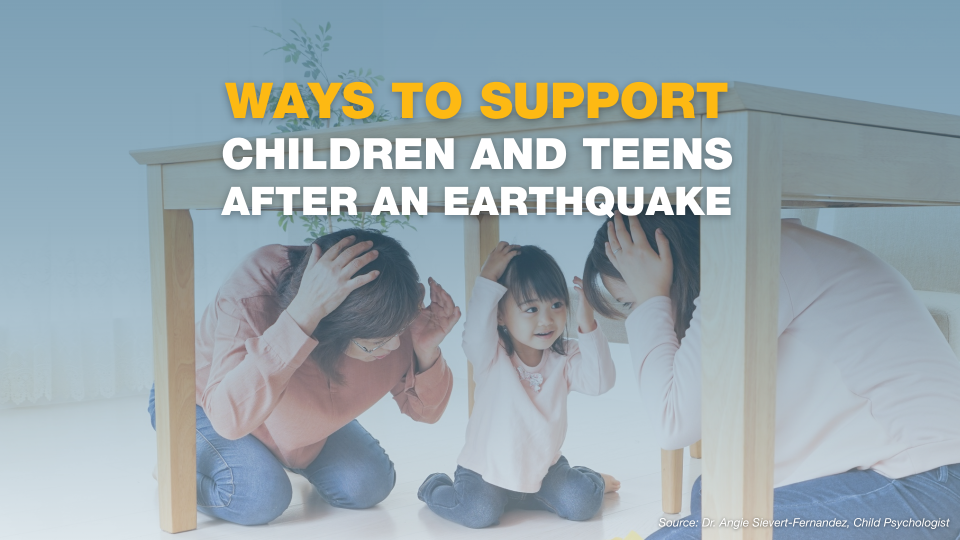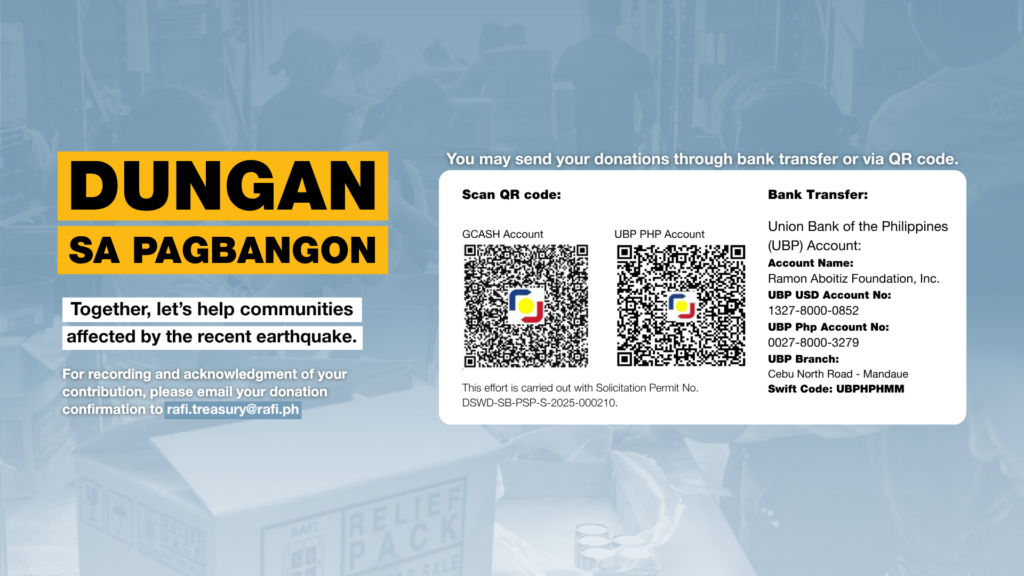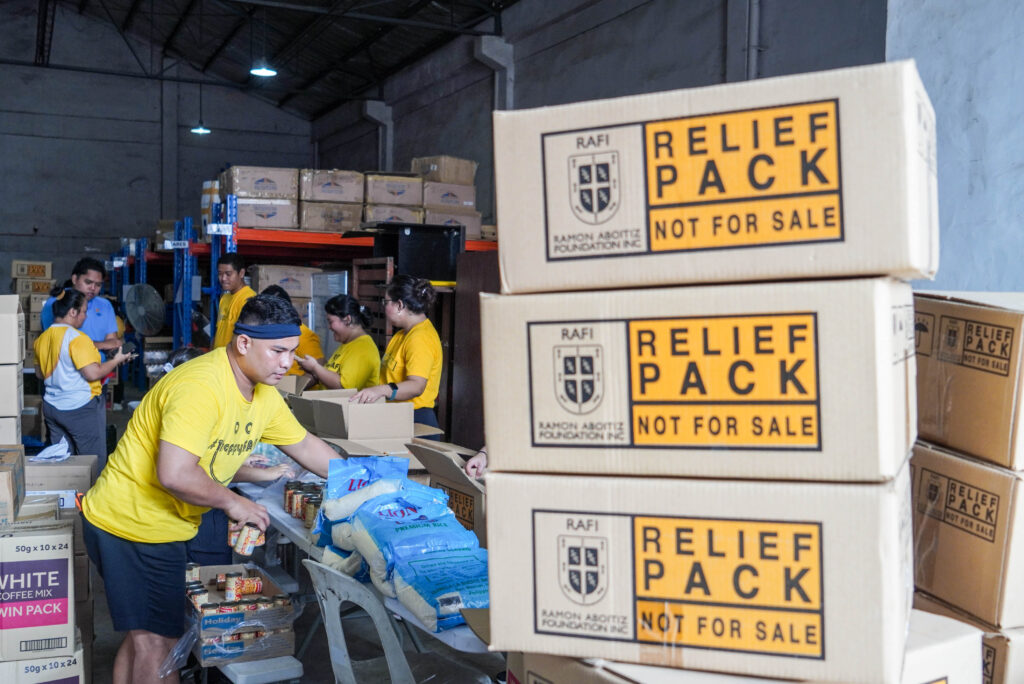
Earthquakes can be very frightening for everyone—adults, children, and teens alike. In the light of the recent 6.9 magnitude earthquake that shook Cebu, the sudden shaking and uncertainty can leave us feeling anxious or unsettled long after the event. As parents and caregivers, we play a vital role in easing our children’s worries, helping them process their emotions, and surrounding them with the reassurance that they are safe, secure, and supported.
At A Glance
Ways to Calm Your Children After An Earthquake:
Dr. Angie Sievert – Fernandez, a child psychologist suggests the following ways to support children and teens after an earthquake:
Offer comfort and presence.
Hugs, closeness, or simply being nearby help children feel secure. For teens, your calm presence—listening without judgment—can be just as reassuring.
Acknowledge feelings.
It’s normal to feel afraid or shaken. Simple statements like, “That was scary, and we’re safe now,” validate emotions for children. With teens, encourage open conversations and let them share worries in their own words.
Provide reassurance.
Remind them that you’re taking steps to keep the family safe and that emergency plans are in place.
Keep routines.
Consistent mealtimes, bedtime, and daily rituals restore a sense of normalcy for children. For teens, encourage them to continue school, hobbies, and social connections where possible.
Encourage healthy expression.
Younger children often process emotions through play, drawing, or storytelling. Teens may prefer journaling, music, or safe conversations with adults and peers.
Highlight strengths.
Focus on family strengths—how everyone stayed together, followed safety drills, or supported one another. This builds resilience and confidence.
Limit news exposure.
Too much media coverage can heighten fears for both children and teens. Share brief, honest, and age-appropriate information.
Reinforce earthquake safety practices.
Review and practice earthquake safety drills at home. Both children and teens feel more empowered when they know what to do.
Keep communication open.
Invite questions, listen with patience, and remind them that their feelings matter. Sometimes just being heard is enough. You may also check additional resources on how to manage your children from different ages.
The most powerful aid we can give children and teens after a crisis is connection and reassurance. With your steady presence, they can move from coping to thriving. We encourage everyone to stay alert and monitor the post-earthquake information through credible news sources to ensure the safety and preparedness of our families.


